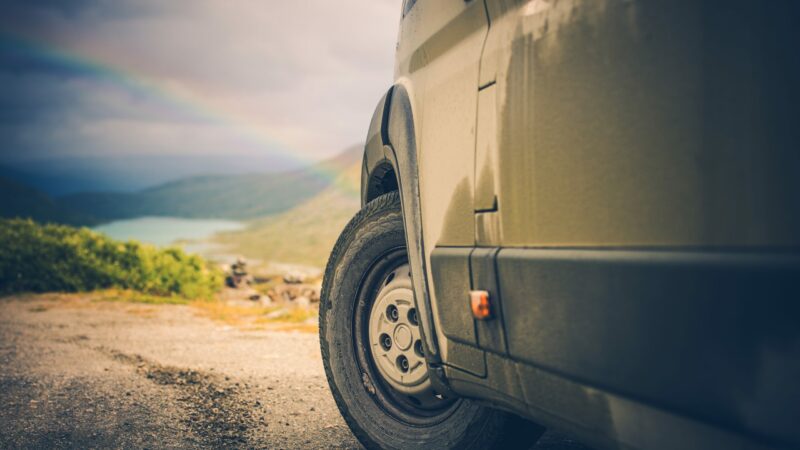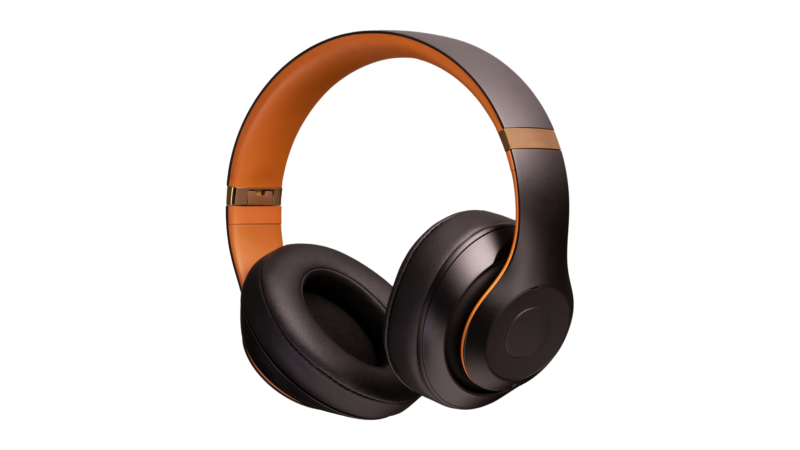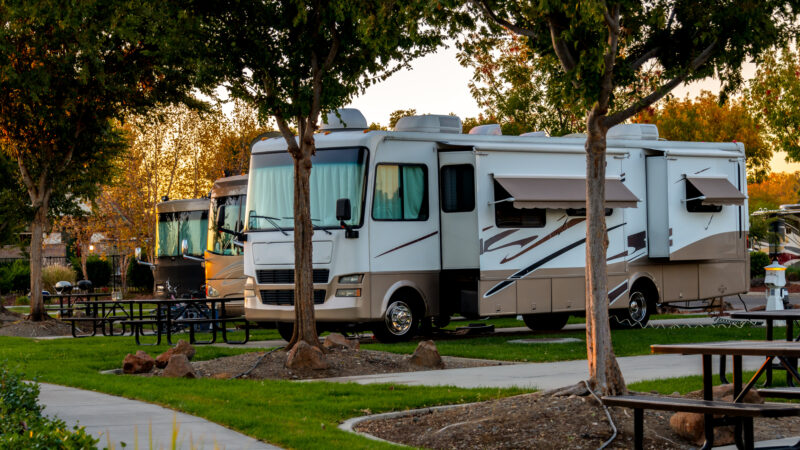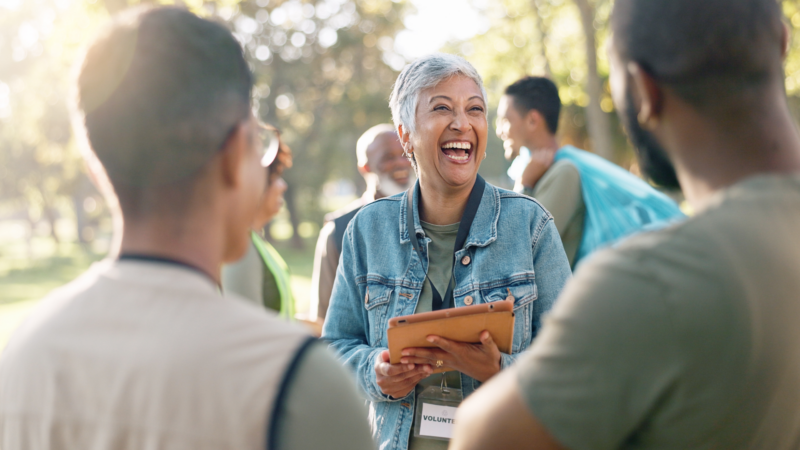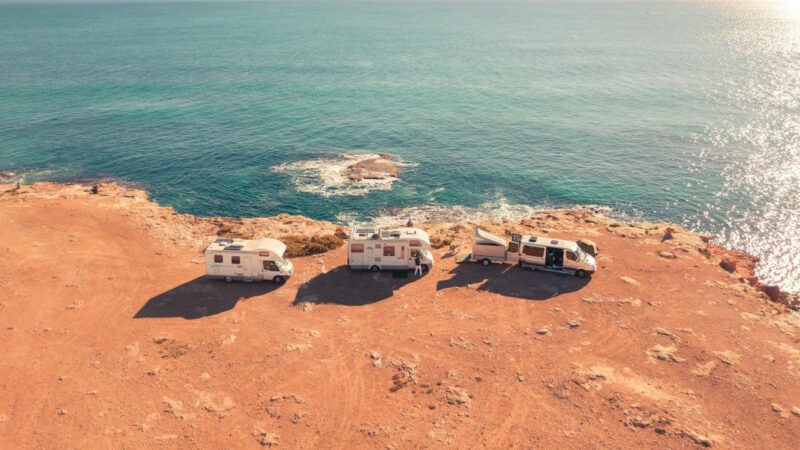Essential Travel Trailer Must-Haves for Beginner RVers: A Guide for Camper Essentials

After climbing into the captain’s chair of your new RV, you may think that all you really need is the open road and perhaps a fresh cup of coffee. Adventure awaits! Hold up… Before you merge onto the highway or find your way to the road less traveled, you’ll want to fully prepare. Yes, there are essentials for a camper you’ll want to pick up. Some enhance safety, others save money or time, and others just provide a little extra comfort in your home away from home.
We’ve removed the guesswork before your first (or next) camping trip with the most important essentials for a camper along with a few extras. Here we go…
What Essential Safety Items Are Needed for Camping?
This first checklist may not be the most exciting, but it is the most important as it will help you stay safe and keep your rig in good working order. Remember, safety first!
Depending on the type of RV you have as well as where you’re going and the time of year, you may need to add more, but this is a good start:
- Water hose for drinking water—make sure it’s color-coded, so you use it only for drinking water; you’ll also want to ensure it’s lead-free and safe for drinking water
- Water pressure regulator so you have enough water pressure without damaging your system and potentially causing leaks
- Durable sewer (i.e., dump) hose (around 15 feet long)
- Emergency and first aid kit
- Water filter
- Flashlight, camping lantern, or headlamp
- Spare batteries
- Phone or USB chargers
- Electrical adaptors and cables
- Extension cord
- Surge protector
- Travel set of tools, including a drill and a fuse kit
- Tire pressure gauge
- Duct tape
- Zip ties
- Ropes
- Fire extinguisher
- Gas can
- Matches and/or lighter
- Jump starter or jumper cables
- Tire chocks, leveling blocks, and jack pads as well as a small bubble level, so you can level your RV and protect any appliances
- Shovel
- RV Insurance, so you’re covered in case of accidents or if anyone gets hurt in your RV
- Water-proof bag with essential documents (e.g., RV registration, insurance, maps, reservation confirmations, etc.)
Depending on where you’re going, you may also want:
- Reservations for where you’ll be staying
- A generator, especially if you’re boondocking rather than staying at a campground
- Extra water, again, this is vital if you’ll be boondocking
- Pet supplies (if you’re bringing along a fur friend)
What Type of Clothing and Footwear Is Essential for Camping?
It can be tempting to pack all of your favorite clothing, but space is at a premium in an RV. There are also weight concerns. In other words, you’ll want to pack simply and do your best to avoid overpacking. You’ll want to choose clothing that’s comfortable and easy to care for when you’re off the beaten track. But you’ll also need specific gear for adventures like hiking, biking, backpacking, climbing, or water sports, etc., depending on your destination(s). The season is also an important consideration. Keep in mind that the weather can change quickly, going from a warm day to a very chilly night. Some must-haves for RVing include:
- Plenty of socks and underwear
- Short and long sleeve shirts
- Base layer clothing, especially if you’ll be hiking or backpacking
- Comfortable loungewear for longer days on the road as well as relaxing in the evening
- Good comfortable shoes for all of your activities, such as sandals, hiking boots, running shoes, snow boots, or water shoes.
- Shower shoes if you’ll be using the facilities at the campground
- Sun protective gear, including a sunhat and sun shirt, especially in the summer
- Swimsuit—even if you aren’t going to a beachy area, you may still have an opportunity to jump in a pool, hot tub, or hot springs
- Rain or snow gear, depending on the season and the weather
- Warm jacket sufficient for the location and time of year (you may need just a hoodie and raincoat or you could need a warm down jacket)
- Sewing kit in case some necessary gear gets damaged and needs to be repaired while you’re on the road.
What Type of Sleeping Equipment Is Necessary for Camping?
One of the best things about an RV is having a comfortable place to crash at the end of an adventure-filled day. It’s easy to forget that you’ll also need to make your bed comfy and cozy. Don’t forget to pack:
- Sheets and blankets designed to fit your RV bed and/or a sleeping bag. It’s worth packing an extra set of sheets in case of spills or if someone gets sick. It’s also a good idea to bring extra blankets. Remember, nights can get cold, even in the summer
- Pillow(s)
- Entertainment for the night—such as a good book or audiobook, TV with downloaded movies, board games, etc. to help you wind down (or entertain you and your crew in the event of not-so-great-weather conditions)
What Types of Personal Care Items Are Needed for Camping?
Even if you are more of a camper than a glamper and want just the basics, there are still personal care items to pack, such as:
- Glasses, including sunglasses
- Sunscreen
- Insect repellent
- Soap
- Shampoo and conditioner
- Towels and washcloths for cleaning up before you get into your pajamas or snuggle into the sheets—choose quick-dry options
- Hair brush or comb
- Deodorant
- Toothbrush
- Toothpaste
- Any medications you use
- Nail clippers
- RV-safe toilet paper
If you are planning on glamping, don’t forget other grooming essentials, such as:
- Razers
- Skincare products like lotions and serums
- Make-up
- Nailcare products
However, choose carefully and pair down what you don’t need. Remember those space and weight limitations!
What Cooking Gear and Utensils Are Needed for Camping?
While there may be nearby restaurants to enjoy while on the road, many find they enjoy leisurely cooking with family and friends between adventures. It’s a great way to bring people together. Of course, that means you’ll want to ensure you have your cooking gear all packed and ready to go, including:
- Water bottle(s)
- Plates, cups, and bowls for serving
- Cooking and eating utensils
- Cutting board and knives
- Dish soap
- Dish sponge or rag
- Dish towels (and a place to hang them)
- Dish drainer
- Cooler (if you don’t have an on-board fridge)
- Lighter or matches
- Cooking pots and skillet—if you’re tight on space, a single cast-iron skillet can serve almost any purpose and save precious space
- Garbage bags and container
- Can opener
- Wine or beer opener (optional)
- Potholders
- Napkins or paper towels
- Reusable containers for storage
- Spray cleaner and cloth or disinfecting wipes
- Coffee maker or press
Don’t forget to pack food to eat, including snacks!
What Gear and Technology Do You Need for Camping?
Again, your gear can vary depending on where you’re going, what you’re doing, who you’re with, and your interests. Some folks want to spend every moment possible outside. Others like to spend their evenings with their favorite technology. Some of the basics to consider include:
- Camping chairs and outdoor tables
- Awning or covers for outdoor space
- Mosquito netting
- Grill
- Camera gear
- Walkie-talkies
- Fishing gear
- Hunting gear
- Bikes
- Kayaks
- Hatchet for chopping wood (and wood if you need to pack it in)
- Backpacks for day hikes or longer adventures
- GPS
- Weather alert station
- TV or other devices with downloaded content
- Laptop
- WIFI Booster if you need to stay connected
RV Essentials for Cleaning
Especially for anything longer than a weekend camping trip, cleanup on the road is necessary, and that means you’ll need some cleaning supplies on board, such as:
- RV toilet chemicals to help break down solids and limit smells (e.g., Porta-Packs)
- Toilet bowel brush
- Cleaning cloths or paper towels
- Multipurpose spray
- Doormat to help you leave the dirt at the door rather than in your rig
- Mini broom or vacuum
- Trash bin
- Dirty clothes hamper
Now that you’ve got all of your essentials for a camper, it’s time to refill that coffee (or beverage of your choice) mug, and head out for all of the adventure that awaits you!


